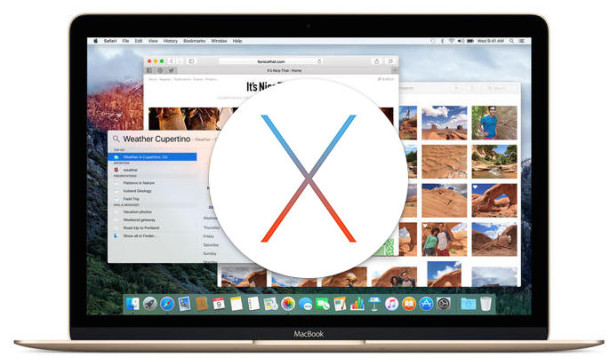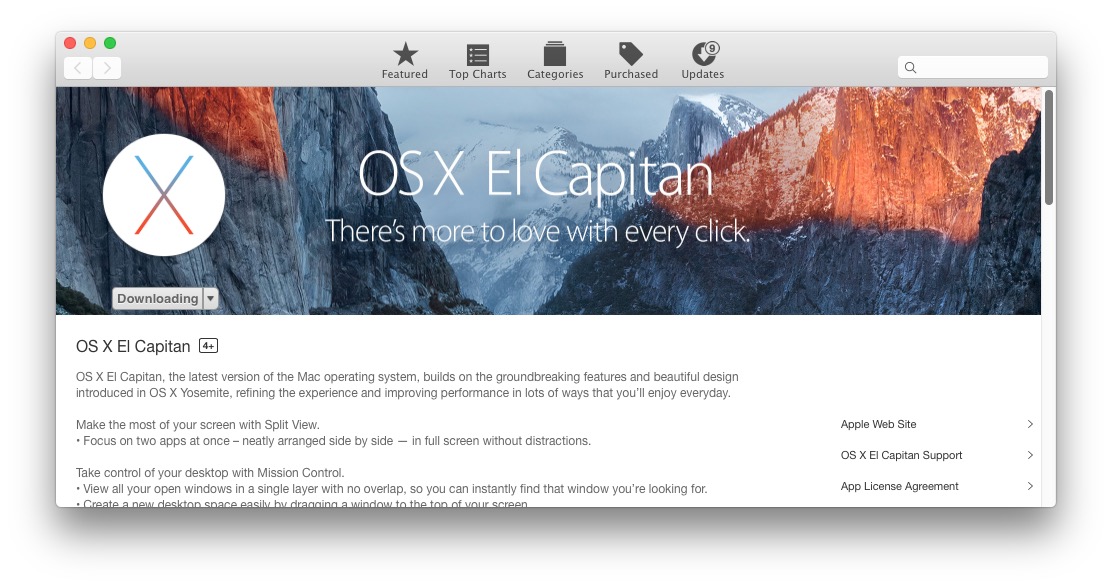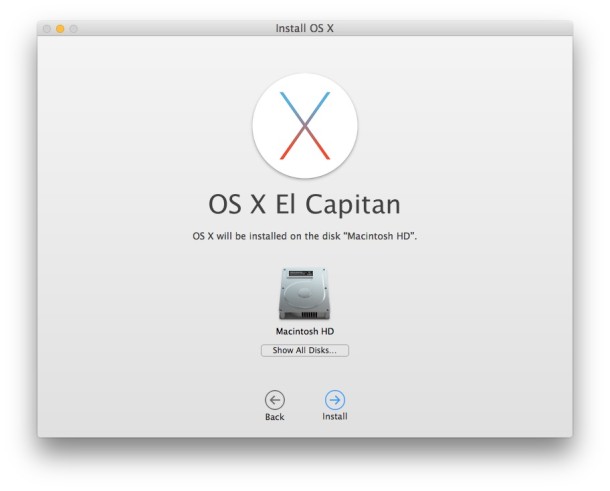
Apple has released OS X El Capitan as a free update to all Mac users.
The new version of system software is officially versioned as OS X
10.11, and the final build number is 15A284. Users can start the
download now from the App Store using the direct link below.
OS X El Capitan brings performance updates and improvements to the
Mac operating system, a including a new system font, split screen view,
adjustments to the Mission Control window manager, improvements to
Spotlight search, and various enhancements to bundled Mac apps including
Mail, Safari, Notes, Maps, Photos, and Safari. The OS X El Capitan
update should offer particularly worthwhile refinements to Mac users
currently running OS X Yosemite.
Any Mac that is capable of running OS X Yosemite or OS X Mavericks is supported and can run OS X El Capitan. If you haven’t done so already, it may be a good time to prepare your Mac for OS X El Capitan installation, but at the very least be sure to back up the Mac before installing any system software update.
Download OS X El Capitan
All Mac users who wish to download OS X El Capitan must do so from
the Mac App Store, where it is available as a free download from Apple:
The El Capitan installer is about 6GB in size.

The installer will automatically launch itself when the download
completes, and the process of updating OS X to El Capitan is a matter of
following onscreen instructions.
Updating to OS X El Capitan
Be sure to start and complete backup your Mac before installing OS X El Capitan, if you haven’t setup Time Machine yet, now would be a good time to do so.
Users who wish to create a bootable USB flash drive installer of OS X El Capitan
should do so before installing the release, as the installer app will
remove itself upon successful completion of the software update.
Instructions on creating a bootable USB install drive for OS X El
Capitan final are here. Using a bootable installer is the best way to perform a clean install of OS X El Capitan.
- Back up the Mac if you haven’t done so yet
- Run the “Install OS X El Capitan” installer app if it hasn’t launched itself and agree to the Terms of Service
- Select the target hard drive to install OS X El Capitan onto, if you’re upgrading your current disk operating system you’d locate the name of the current boot drive, which is typically “Macintosh HD”, then click on “Install

.
No comments:
Post a Comment